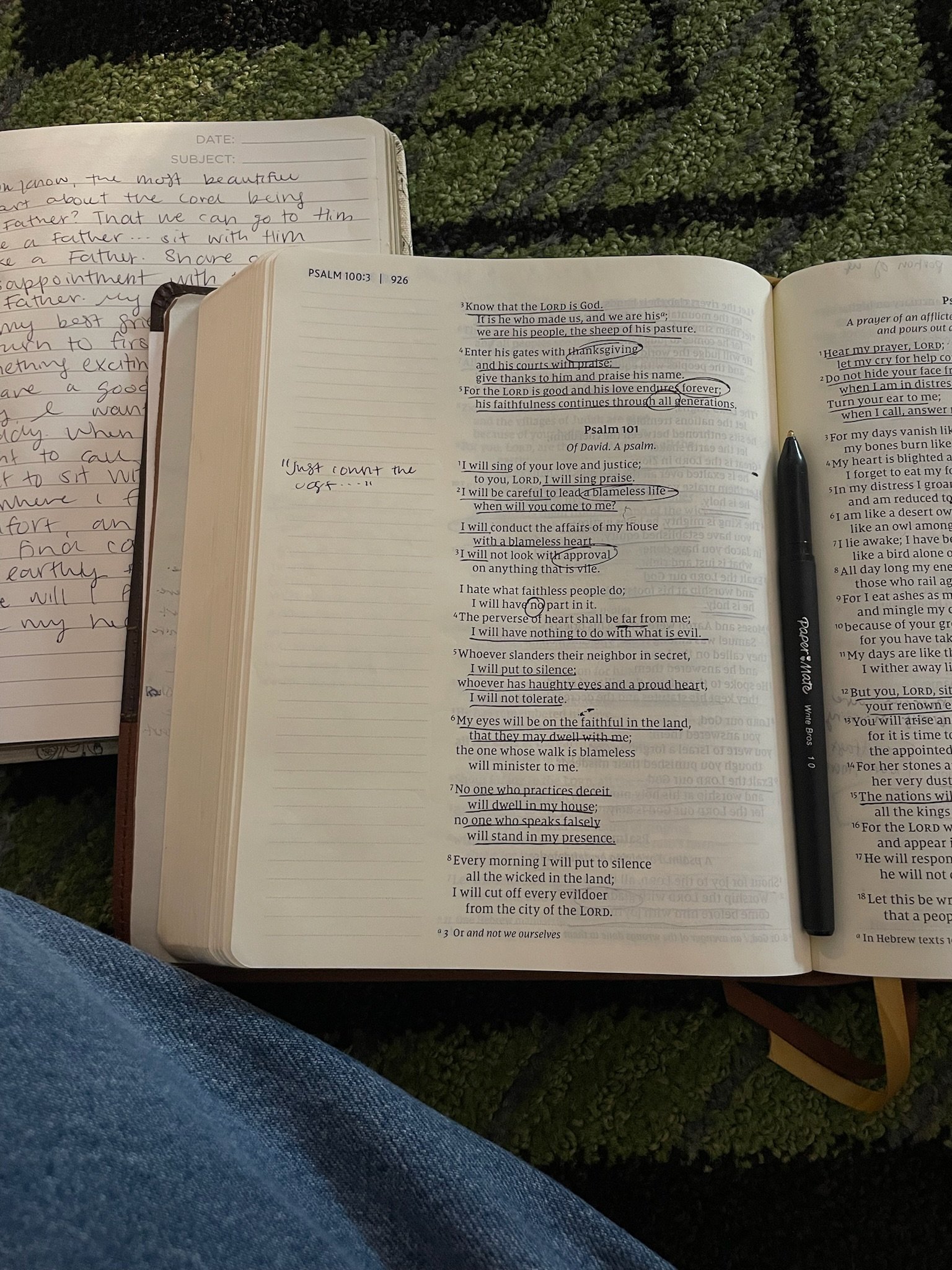Our beliefs are simple…

We hold to the core beliefs that the church has always held since its beginning. We want to focus on the major points, while allowing room for discussion and debate on the others. We do this because we want to join with others, and have them join us, in what matters to God: His people actively bringing others into His family. On the core beliefs we seek unity, on the distinctives and others we seek charity, and toward one another we seek to act in love.
There is one God (Deut. 6:4), Creator of all things (Rev. 4:11), who is infinitely perfect (Matt. 5:48), existing eternally in three persons: Father, Son, and Holy Spirit (Matt. 28:19).
Jesus Christ is the true God and true man (Phil. 2:6–11), and both natures were necessary for our salvation. He was sent by the Father (John 20:21), conceived by the Holy Spirit and born of the virgin, Mary (Luke 1:34–38). He died on the cross, to reconcile God with us (1 Pet. 3:18), as a substitutionary sacrifice (Heb. 2:9), and all who believe in Him are justified because of his death (Rom. 5:9).
He rose from the dead (1 Cor. 15:3–4), which is a key because it is proof that he has overcome death and sin and the separation between us and God. He is now at the right hand of the Father as our great High Priest (Heb. 8:1), and the one who intercedes for us (John 14-16; Romans 8). He will come again to establish His Kingdom of righteousness and peace (Isa. 9:6–7).
The Holy Spirit is a divine person (John 14:16–18), sent to indwell, guide, teach, gift, empower, and bear His fruit and gifts in every believer (John 16:13; 1 Cor. 12:4, 11; Acts 1:8; Gal. 5:22–23) so that we increasingly look more like one of God’s children. The Spirit convicts the world of sin, of righteousness, and of judgment (John 16:7–11).
The Old and New Testaments, are without error because the were verbally inspired by God and are a complete revelation of His will for our salvation. They constitute the divine and only rule of Christian faith and practice (2 Pet. 1:20–21; 2 Tim. 3:15–17).
Humans were originally created in the image and likeness of God and were created for life with God. Yet they fell through disobedience, which resulted in physical and spiritual death as our default setting (Romans 6). All people are affected and infected with a sinful nature. Because of this, we are separated from the life of God, and can be saved only through the atoning sacrifice of our Lord Jesus Christ. Those who do not become Christ-followers have a future existence that is eternally separated from God, while for those who submit the Christ’s lordship will be with Him forever. (Genesis 1:27, Romans 3:23, 1 Corinthians 15:20–23, Revelation 21:8, Revelation 21:1–4)
Salvation has been provided through Jesus Christ for all people (1 John 2:2). Those who repent and believe in Him are justified by grace through faith (Rom. 3:21–24), born again of the Holy Spirit (Titus 3:4–7), delivered from the dominion of darkness, transferred into the Kingdom of God’s Son (Col. 1:13), granted the gift of eternal life, and adopted as the children of God (Rom. 8:14–16; John 1:12).
God’s desire for us is that each believer should be filled with the Holy Spirit and be increasingly remade in the image of God. This means that they increase in being set apart for God and dedicated to God in a process of spiritual growth and renewal. The means that they are increasingly set free from sins and the control of sin and the world and become more fully dedicated to the will of God. This is done through receiving power for holy living and effective service. This spiritual growth begins in a crisis moment and in progressive experiences that happen in the life of the believer subsequent to conversion as they increasingly submit to the leading of the Spirit. (1 Thessalonians 5:23, Acts 1:8, Romans 6-8)
God also desires people who are emotionally, physically, and spiritually whole. God enables this through our the submissive obedience, death, and resurrection of our Lord Jesus Christ. Because of what Christ has done, he has supplied what we need for the healing of the whole person (Isa. 53:4–5; Matt. 8:16–17). Because of this, we will pray for the sick and anoint people with oil (James 5:13–16) because these gifts and activities are the priveleges for the Church in this present age (Acts 4:30).
The Church consists of all those who believe in the Lord Jesus Christ, are redeemed through His blood, and are born again of the Holy Spirit. Christ is the Head of the Body, the Church, which has been commissioned by Him to go into all the world as a witness, preaching the gospel to all nations. We exist as a local part of this larger Church for the worship of God, for encouraging one another and building one another up in faith through the Word of God, prayer, fellowship, the proclamation of the gospel, and the observance of Baptism and the Lord’s Supper. (27Ephesians 1:22–23, Matthew 28:19–20, Acts 2:41–47)
There shall be a bodily resurrection of the just and of the unjust; for the former, a resurrection unto life; 30 for the latter, a resurrection unto judgment.31 (301 Corinthians 15:20–23, 31John 5:28–29)
Jesus will come again soon, and it will be personal and visible. He will come back to establish his kingdom on the earth, so that death and sin will be done away with and he will live in God’s presence forever. Because we believe this, it is an incentive for us to live in a way that increasingly looks more like Jesus: the fruit and gifts of the Spirit will increase in us, we will live in a way that is faithful in service and increases in submission God’s call to holiness. (Hebrews 10:37, Luke 21:27, Titus 2:11–14)
